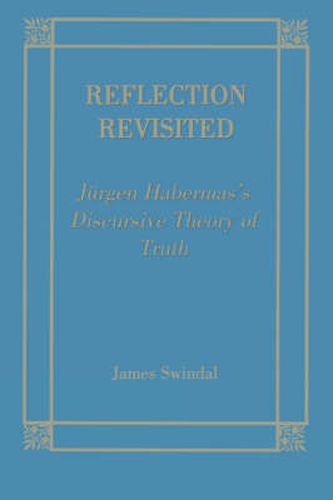Readings Newsletter
Become a Readings Member to make your shopping experience even easier.
Sign in or sign up for free!
You’re not far away from qualifying for FREE standard shipping within Australia
You’ve qualified for FREE standard shipping within Australia
The cart is loading…






Jurgen Habermas, particularly in his master work Theory of Communicative Action (1981), takes us several of the basic insights of the philosophical tradition of reflection initiated by Kant, and sets it on a new and highly original emancipative path. He claims that reflection not only can determine the limits of reasoning about thought and action, but also can grasp the limits that human agents face in freeing themselves form unjust social and economic structures. Human agents can engage in constructive and emancipative communication with others by determining the limits not of their own consciousness, but of the intersubjective structures shared in everyday communication. Reflection Revisited examines Habermas’ own two-stage development of this theory of emancipative reflection and explicates how he applies reflection specifically to the problems of personal identity development and ethics.
$9.00 standard shipping within Australia
FREE standard shipping within Australia for orders over $100.00
Express & International shipping calculated at checkout
Jurgen Habermas, particularly in his master work Theory of Communicative Action (1981), takes us several of the basic insights of the philosophical tradition of reflection initiated by Kant, and sets it on a new and highly original emancipative path. He claims that reflection not only can determine the limits of reasoning about thought and action, but also can grasp the limits that human agents face in freeing themselves form unjust social and economic structures. Human agents can engage in constructive and emancipative communication with others by determining the limits not of their own consciousness, but of the intersubjective structures shared in everyday communication. Reflection Revisited examines Habermas’ own two-stage development of this theory of emancipative reflection and explicates how he applies reflection specifically to the problems of personal identity development and ethics.